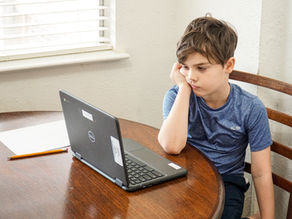Meet the Presenter: Rebecca Williams
- Dec 1, 2023
- 3 min read
Updated: May 4, 2025

Have you always been interested in science?
I’ve always been interested in learning, but that was never limited to just the sciences! Though I spend most of my time now studying neuroscience, I will always try to make time to learn about the latest developments in astrophysics and love listening to podcasts about ancient mythology and civilisations. The world is just such an interesting place!
What is your earliest sci memory?
I have quite a vivid memory from my early high school days of explaining punnet squares to my Nanna. My Grandpa had recently been diagnosed with frontotemporal dementia, and she had been given clinical information explaining the risk of other family members developing the same condition. I had just finished learning about inheriting genes in biology class and was able to explain the risk in a way she understood. This is a memory I look back on often, as it reminds me of the power we can have as science communicators to make the world a slightly less confusing and uncertain place.
What do you like about being a B! Presenter?
As much as I love doing experiments with people, I love the question-and-answer sessions the most. Sometimes as scientists it can be easy to forget how amazing our science is, but young people especially always seem to get right to the heart of what makes it so interesting. Don’t get me wrong, I love having conversations with other academics and professors, but there’s just something really special about being asked a thought-provoking question by a toddler. It lets me look at science with wide-eyed wonder all over again.

What do you do for work when not presenting for B!?
When I’m not working for B! I spend my days as a PhD student researching dementia at the University of Cambridge. I really love being a researcher because of the variety of things I get to do, which makes describing a typical day quite difficult. While one day I can be sat writing code for 8 hours, the next I can be scanning the brains of our amazing volunteers, or discussing the latest research with my peers. It can be quite hectic, but it’s certainly never dull!
Do you have a favourite quote?
One of my favourite quotes is “curiosity killed the cat”, because most people don’t seem to remember the second half: “but satisfaction brought it back”! I think it’s funny that people often say this to discourage others from being curious when the original quote is actively encouraging people to seek out answers even when it might be daunting to do so.
Why do you think it’s important to help young people understand their brains?
For me, understanding how the brain works and engaging with neuroscience theories has really helped me to understand my own thought processes and how I engage with the world. I suppose it comes down to the fact that everyone has a brain! I think that encouraging young people to be curious about where their thoughts come from and how they interact with the world can give them a new approach to tackling problems in school and in life. Plus, brains are really cool – I mean, who doesn’t want to learn about stuff that’s really cool?

What one big question about the brain would you like to know the answer to?
What do dreams mean? And where do they come from? And why do we dream? Dreaming is such a strange phenomenon that is almost impossible to study because it only ever happens in our heads. I think it’s just amazing that our brains can put together such complicated stories, and I often wonder why it bothers.
Why did you decide to study neuro?
I’ve always loved science, but I’ve always loved working with people. I didn’t want to be in a lab working with cells or staring at equations on a whiteboard all the time. I think neuroscience lets us try to tackle some of the biggest questions about ourselves. It brings together concrete science with all the wonder and weirdness of being people. If you drop an apple, physics can tell you how fast it will fall and where it will land, but will we ever be able to say for sure if someone would catch it? I just don’t know. And isn’t that exciting!?










